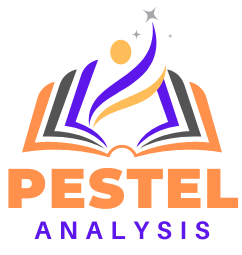Vietnam’s rapid economic growth and strategic positioning in Southeast Asia make it a focal point for regional business and investment opportunities. Conducting a PESTLE analysis of Vietnam provides a comprehensive overview of the political, economic, social, technological, legal, and environmental factors that influence its market dynamics. As Vietnam continues to evolve from a primarily agrarian economy to an emerging industrial powerhouse, understanding these external forces is crucial for stakeholders aiming to navigate the complexities of this vibrant and increasingly interconnected market. This analysis will delve into the various elements shaping Vietnam’s business landscape, offering insights into how these factors impact both domestic and international enterprises.
Table of Contents
TogglePolitical Factors of Vietnam
Centralized Governance and Stability
Vietnam’s political landscape is characterized by a single-party system led by the Communist Party of Vietnam (CPV). This centralized governance structure provides a high level of political stability, which is attractive to investors and businesses seeking a predictable environment for long-term planning. The CPV’s control over political decisions ensures consistency in policy implementation, which can facilitate smoother business operations and regulatory processes.
Economic Policies and Reforms
The Vietnamese government has been proactive in implementing economic reforms and liberalization measures to enhance its global economic integration. Policies aimed at attracting foreign direct investment (FDI) and fostering economic growth include streamlining business registration processes, reducing trade barriers, and promoting infrastructure development. Additionally, Vietnam’s participation in international trade agreements, such as the EU-Vietnam Free Trade Agreement (EVFTA) and the Comprehensive and Progressive Agreement for Trans-Pacific Partnership (CPTPP), underscores its commitment to integrating into the global economy and creating a more favorable environment for international trade and investment.
Corruption and Transparency Issues
Despite efforts to improve governance, corruption remains a significant challenge in Vietnam. Corruption can affect business practices, lead to regulatory inconsistencies, and undermine investor confidence. The government has launched anti-corruption campaigns aimed at addressing these issues, but businesses must navigate a landscape where transparency and accountability can be variable.
Bureaucratic Efficiency and Regulation
Vietnam’s regulatory environment can be complex and bureaucratic, with potential delays and inefficiencies in administrative processes. While the government has made efforts to simplify regulations and improve the business environment, companies may still encounter challenges related to obtaining permits, navigating local regulations, and dealing with bureaucratic red tape.
Overall, the political factors in Vietnam present both opportunities and challenges for businesses. The country’s stability and commitment to economic reform are positive aspects, while corruption and bureaucratic inefficiencies highlight the need for careful navigation and strategic planning. Understanding these political dynamics is crucial for businesses aiming to succeed in the Vietnamese market.
Economic Factors of Vietnam
Rapid Economic Growth
Vietnam has experienced impressive economic growth over the past few decades, transitioning from a primarily agrarian economy to a rapidly industrializing and urbanizing nation. The country’s GDP growth has consistently been among the highest in the region, driven by strong domestic consumption, expanding manufacturing capabilities, and increasing foreign investment. This growth trajectory presents significant opportunities for businesses across various sectors.
Foreign Direct Investment (FDI) and Trade
Vietnam’s open-door policy towards foreign investment has led to a substantial influx of FDI, bolstering economic development and enhancing industrial capacity. The government has established numerous industrial zones and offered incentives to attract investors. Trade agreements like the EU-Vietnam Free Trade Agreement (EVFTA) and the Comprehensive and Progressive Agreement for Trans-Pacific Partnership (CPTPP) further integrate Vietnam into the global economy, reducing tariffs and improving market access for Vietnamese products.
Economic Diversification
The Vietnamese economy is becoming increasingly diversified, with significant contributions from sectors such as manufacturing, services, and technology. The growth of the technology and digital sectors is particularly noteworthy, as Vietnam positions itself as a hub for tech startups and innovation. This diversification reduces reliance on any single sector and provides multiple avenues for business expansion.
Inflation and Exchange Rates
Vietnam has faced challenges with inflation and exchange rate fluctuations, which can impact business operations and consumer purchasing power. While the government has implemented measures to control inflation and stabilize the currency, businesses must be prepared to manage these economic variables. Exchange rate stability is crucial for companies engaged in international trade and investment.
Infrastructure Development
The Vietnamese government is investing heavily in infrastructure development, including transportation networks, energy production, and urban infrastructure. These investments are intended to support economic growth, improve logistics, and enhance overall business efficiency. However, infrastructure development can also lead to short-term disruptions and regional disparities in access to resources.
Labor Market and Wages
Vietnam boasts a relatively young and growing labor force, which is attractive to businesses seeking cost-effective labor solutions. However, as the economy progresses, wage levels are rising, and there is a growing demand for skilled labor. Companies may need to invest in training and development to attract and retain talent, especially in high-tech and specialized sectors.
Overall, Vietnam’s economic factors offer a favorable environment for investment and business growth, characterized by rapid expansion, increasing FDI, and diversification. Nonetheless, businesses must navigate challenges related to inflation, exchange rates, and infrastructure development to fully capitalize on the opportunities available in this dynamic market.
Social Factors of Vietnam
Demographic Trends and Workforce
Vietnam’s population is over 98 million, with a significant proportion under the age of 35. This youthful demographic provides a dynamic and growing labor force that is attractive to employers, especially in sectors requiring adaptable and tech-savvy employees. The expanding middle class, which has more disposable income, drives consumer demand and presents opportunities for businesses across various sectors, including retail, healthcare, and education.
Urbanization and Lifestyle Changes
Rapid urbanization is reshaping Vietnamese society, with more people moving to cities and contributing to the growth of urban centers such as Ho Chi Minh City and Hanoi. This shift is accompanied by changes in lifestyle and consumption patterns, including increased demand for modern amenities, entertainment, and higher-quality goods and services. Businesses that cater to urban lifestyles and preferences can benefit from these evolving consumer behaviors.
Education and Skill Development
Vietnam has made significant strides in improving educational outcomes, with rising literacy rates and an increasing focus on higher education and vocational training. However, there is still a need for ongoing investment in skill development to meet the demands of a modern, technology-driven economy. Companies may find opportunities in partnering with educational institutions to develop tailored training programs that address skill gaps and enhance the employability of the workforce.
Cultural Values and Consumer Preferences
Vietnamese culture places a strong emphasis on family, tradition, and community. These cultural values influence consumer preferences and behavior, affecting everything from purchasing decisions to brand loyalty. Understanding and respecting these cultural nuances is essential for businesses looking to effectively market products and services. Additionally, the growing influence of global trends and media is gradually shaping consumer attitudes and preferences, blending traditional values with modern influences.
Health and Wellness Trends
There is a growing awareness and demand for health and wellness products and services in Vietnam. As incomes rise and living standards improve, more Vietnamese are prioritizing health, fitness, and well-being. This trend presents opportunities for businesses in the healthcare, fitness, and wellness industries to tap into a market that is increasingly focused on healthy living and preventive care.
Social Inequality and Regional Disparities
Despite overall economic progress, Vietnam faces challenges related to social inequality and regional disparities. Rural areas often lag behind urban centers in terms of economic development, infrastructure, and access to services. Addressing these disparities can be both a challenge and an opportunity for businesses looking to expand into less developed regions or engage in corporate social responsibility initiatives aimed at promoting equitable development.
In summary, Vietnam’s social factors, including its youthful population, urbanization trends, and evolving consumer preferences, create a dynamic environment for businesses. Understanding these social dynamics is crucial for companies seeking to tailor their strategies and offerings to meet the needs and expectations of Vietnamese consumers effectively.
Technology Factors of Vietnam
Rapid Technological Advancement
Vietnam has experienced significant growth in its technological sector, driven by both government initiatives and private sector innovation. The country is increasingly recognized as a burgeoning hub for technology and startups, with advancements in fields such as information technology, e-commerce, and fintech. This rapid technological development is creating a favorable environment for businesses that leverage cutting-edge technologies to improve their operations and engage with consumers.
Government Support and Digital Transformation
The Vietnamese government has actively supported digital transformation through various policies and strategic plans. Initiatives such as the “Vietnam Digital Transformation” strategy aim to enhance the country’s digital infrastructure, promote the use of technology in various sectors, and foster innovation. Government-backed programs and investments in digital infrastructure, including high-speed internet and smart city projects, are paving the way for further technological advancements and business opportunities.
Growing Startup Ecosystem
Vietnam’s startup ecosystem is vibrant and expanding, with numerous technology startups emerging across sectors like e-commerce, artificial intelligence, and biotechnology. This growth is supported by a network of incubators, accelerators, and venture capital funding. The proliferation of startups and tech hubs, particularly in cities like Ho Chi Minh City and Hanoi, offers opportunities for collaboration, investment, and technological innovation.
E-Commerce and Digital Payment Systems
E-commerce in Vietnam is booming, driven by increasing internet penetration, mobile device usage, and changing consumer habits. The rise of digital payment systems and online shopping platforms has transformed the retail landscape, presenting opportunities for businesses to engage with a tech-savvy and increasingly digital consumer base. Mobile wallets and digital banking services are also gaining traction, contributing to the growth of a cashless economy.
Cybersecurity and Data Protection
As Vietnam’s technological landscape expands, so does the need for robust cybersecurity measures and data protection practices. With increasing digitalization, businesses must address challenges related to data breaches, cyber-attacks, and regulatory compliance concerning data privacy. The government has introduced regulations and guidelines to enhance cybersecurity, but companies must remain vigilant and proactive in safeguarding their digital assets and consumer information.
Technology Infrastructure and Connectivity
Vietnam has made strides in improving its technology infrastructure, including expanding broadband internet access and developing telecommunications networks. However, disparities in infrastructure development between urban and rural areas still exist. Businesses operating in or expanding to rural regions may encounter challenges related to connectivity and technology infrastructure. Continued investment in infrastructure development is essential for ensuring widespread and reliable access to technological resources.
Innovation and Research and Development (R&D)
Investment in research and development is growing, with both the government and private sector increasingly recognizing the importance of innovation. Vietnamese universities and research institutions are collaborating with businesses to advance technology and foster a culture of innovation. Companies that invest in R&D can leverage local talent and resources to drive technological advancements and gain a competitive edge in the market.
In summary, Vietnam’s technological factors, including its rapid advancements, supportive government policies, and growing startup ecosystem, create a dynamic environment for business innovation and digital engagement. However, challenges related to cybersecurity, infrastructure disparities, and the need for ongoing R&D investment must be addressed to fully capitalize on the opportunities presented by the evolving tech landscape.
Legal Factors of Vietnam
Regulatory Environment and Business Laws
Vietnam has made significant strides in reforming its regulatory environment to support economic growth and attract foreign investment. The legal framework governing business operations includes laws on enterprise registration, investment, and trade, which are designed to streamline processes and enhance transparency. Recent reforms aim to simplify regulatory requirements, reduce bureaucratic red tape, and improve the ease of doing business, making it more straightforward for both domestic and foreign companies to operate in Vietnam.
Intellectual Property Rights
Intellectual property (IP) protection is increasingly important as Vietnam’s economy grows and diversifies. The government has made efforts to strengthen IP laws and enforcement, aligning with international standards and agreements such as the Trade-Related Aspects of Intellectual Property Rights (TRIPS) Agreement. Companies must navigate Vietnam’s IP regulations to safeguard their innovations, trademarks, and patents. While improvements have been made, challenges with IP enforcement and infringement still exist, necessitating vigilance and legal safeguards.
Labor Laws and Employment Regulations
Vietnam’s labor laws are designed to protect workers’ rights and establish fair working conditions. These laws cover aspects such as working hours, wages, social insurance, and occupational health and safety. Recent updates have introduced reforms aimed at improving labor standards and aligning with international labor practices. Businesses must ensure compliance with these regulations to avoid legal disputes and penalties, and to foster positive labor relations.
Environmental Regulations
As Vietnam continues to industrialize, environmental protection has become a key focus of government policy. Environmental regulations cover areas such as pollution control, waste management, and resource conservation. Companies operating in Vietnam need to adhere to these regulations, which may involve obtaining environmental permits, conducting impact assessments, and implementing sustainable practices. Non-compliance with environmental laws can result in fines, legal actions, and damage to a company’s reputation.
Taxation and Compliance
Vietnam’s tax system includes corporate income tax, value-added tax (VAT), and other levies. The government has introduced various tax incentives to attract investment, such as preferential rates for specific industries or regions. However, navigating the tax landscape requires careful attention to regulatory changes and compliance requirements. Businesses must maintain accurate financial records, file tax returns timely, and stay informed about any modifications to tax laws to ensure adherence and avoid potential issues with tax authorities.
Dispute Resolution and Legal System
The legal system in Vietnam provides mechanisms for resolving commercial disputes, including arbitration and litigation. The country has developed a framework for dispute resolution, with increasing emphasis on arbitration as a preferred method due to its efficiency and confidentiality. However, the legal system can be complex, and businesses may encounter challenges related to legal interpretation, enforcement of judgments, and procedural delays. Engaging with local legal experts can help navigate these complexities and ensure effective dispute resolution.
Anti-Corruption Measures
The Vietnamese government has intensified efforts to combat corruption through various anti-corruption laws and initiatives. While these measures aim to improve transparency and reduce corruption, businesses may still face challenges related to bribery and unethical practices. Adhering to anti-corruption guidelines and maintaining ethical business practices are crucial for mitigating risks and ensuring compliance with legal standards.
Vietnam’s legal factors encompass a range of regulations and compliance requirements that impact business operations. While recent reforms and improvements have enhanced the regulatory environment, businesses must navigate complexities related to IP protection, labor laws, environmental regulations, taxation, and dispute resolution. Staying informed about legal developments and engaging with local legal professionals are essential for successfully managing legal risks and ensuring compliance in the Vietnamese market.
Environmental Factors of Vietnam
Sustainability and Environmental Regulations
As Vietnam continues to industrialize and urbanize, sustainability has become a critical focus. The Vietnamese government has implemented various environmental regulations aimed at managing pollution, conserving natural resources, and promoting sustainable practices. These regulations cover areas such as emissions control, waste management, and environmental impact assessments. Businesses operating in Vietnam must comply with these regulations to minimize their environmental footprint and avoid penalties.
Climate Change and Natural Disasters
Vietnam is highly vulnerable to climate change, experiencing issues such as rising sea levels, increased frequency of extreme weather events, and natural disasters like typhoons and flooding. These climate-related challenges can impact infrastructure, supply chains, and overall business operations. Companies need to develop contingency plans and resilience strategies to mitigate the effects of natural disasters and adapt to changing environmental conditions.
Resource Management and Pollution
Resource management is a significant concern in Vietnam due to the rapid pace of industrialization and urban growth. Issues such as water scarcity, air and soil pollution, and waste management require attention. The government has enacted laws to address pollution and promote the efficient use of resources, but enforcement and implementation can vary. Businesses should adopt practices that reduce resource consumption, minimize waste, and limit environmental impact to align with regulatory requirements and corporate social responsibility goals.
Biodiversity and Conservation Efforts
Vietnam is home to diverse ecosystems and a rich array of flora and fauna. Protecting biodiversity and promoting conservation efforts are important aspects of the country’s environmental policies. Businesses operating in or near natural habitats must be mindful of their impact on local ecosystems and support conservation initiatives. Engaging in sustainable practices and contributing to environmental conservation can enhance a company’s reputation and foster positive relations with stakeholders.
Energy Consumption and Renewable Energy
Energy consumption and the transition to renewable energy sources are critical issues in Vietnam’s environmental landscape. The government has set targets for increasing the use of renewable energy and improving energy efficiency. Businesses that invest in or adopt renewable energy solutions, such as solar or wind power, can benefit from incentives and contribute to national sustainability goals. Reducing reliance on fossil fuels and enhancing energy efficiency can also lead to cost savings and operational benefits.
Environmental Awareness and Corporate Responsibility
Public awareness of environmental issues is growing in Vietnam, with increasing demand for businesses to demonstrate environmental responsibility. Companies are expected to integrate environmental considerations into their operations and communicate their sustainability efforts to consumers and stakeholders. Embracing corporate social responsibility (CSR) practices and engaging in community-based environmental initiatives can improve a company’s public image and align with evolving consumer expectations.
Compliance Costs and Operational Impact
Complying with environmental regulations may involve additional costs and operational adjustments for businesses. These costs can include investments in pollution control technologies, waste management systems, and environmental audits. While these expenditures can be significant, they are often necessary for regulatory compliance and long-term sustainability. Companies that proactively address environmental concerns can mitigate risks and capitalize on opportunities related to green technologies and eco-friendly practices.
Vietnam’s environmental factors encompass a range of issues from regulatory compliance and climate change to resource management and conservation. Businesses must navigate these factors by adopting sustainable practices, investing in renewable energy, and ensuring compliance with environmental regulations. Addressing environmental challenges not only helps mitigate risks but also enhances corporate reputation and aligns with broader sustainability goals.



